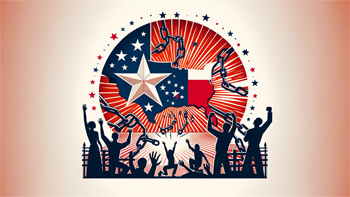 Juneteenth in the United States
Juneteenth in the United States


Juneteenth, celebrated on June 19th each year, is a significant day in the history of the United States. It marks the day in 1865 when Union soldiers, led by Major General Gordon Granger, arrived in Galveston, Texas, with news that the Civil War had ended and that the enslaved were now free. This announcement came two and a half years after President Abraham Lincoln’s Emancipation Proclamation, which had become official on January 1, 1863. Juneteenth, therefore, symbolizes a pivotal moment in American history - the end of slavery in the United States.
The Historical Significance of Juneteenth
The history of Juneteenth speaks volumes about perseverance and the struggle for freedom. Despite the Emancipation Proclamation, slavery had continued in the Confederate States until the end of the Civil War. Juneteenth, therefore, represents a true end to the atrocities of slavery. For African Americans, this day is a testament to the resilience and enduring hope of a community that fought for and won its freedom against all odds.
Celebrations and Traditions
Juneteenth celebrations vary across the United States but often include parades, family gatherings, barbecues, historical reenactments, and readings of the Emancipation Proclamation. Music, dancing, and the sharing of meals are common ways of observing this day, reflecting the joy and relief of ancestors upon receiving news of their freedom. Juneteenth is also a time for reflection and discussion about African American history and culture, with events focusing on education and awareness.
Juneteenth Becomes a Federal Holiday
In recent years, there has been a growing movement to recognize Juneteenth as a national holiday. This movement gained momentum in 2020, amidst the global protests against racial injustice and police brutality. Finally, on June 17, 2021, President Joe Biden signed a bill making Juneteenth the first new federal holiday since Martin Luther King Jr. Day was established in 1983. This recognition at the federal level underscores the importance of Juneteenth in American history and its relevance in the ongoing struggle for equality and civil rights.
Juneteenth in Modern Times
In modern times, Juneteenth serves as more than just a historical commemoration. It’s a day that galvanizes community action and advocacy. Current celebrations often involve discussions about social justice, civil rights, and methods to advance equality for all. Juneteenth is seen as an opportunity to foster community development, encourage self-reflection, and continue the fight against systemic racism.
Educational Impact of Juneteenth
Education is a central theme in Juneteenth observances. Schools and educational institutions often hold special events or curricula to teach students about the history of slavery, the Civil War, and the civil rights movement. These educational activities aim to provide a deeper understanding of the historical struggles for freedom and equality and inspire the younger generation to continue the work of their forebears.
Juneteenth, with its rich history and profound significance, is a day of jubilation, remembrance, and hope. It serves as a reminder of the dark past of slavery in the United States but also celebrates the resilience and unyielding spirit of those who fought for freedom. As a symbol of liberation and a beacon for ongoing change, Juneteenth holds a unique and enduring place in the American cultural landscape, reminding us all of the continuous journey toward equality and justice.